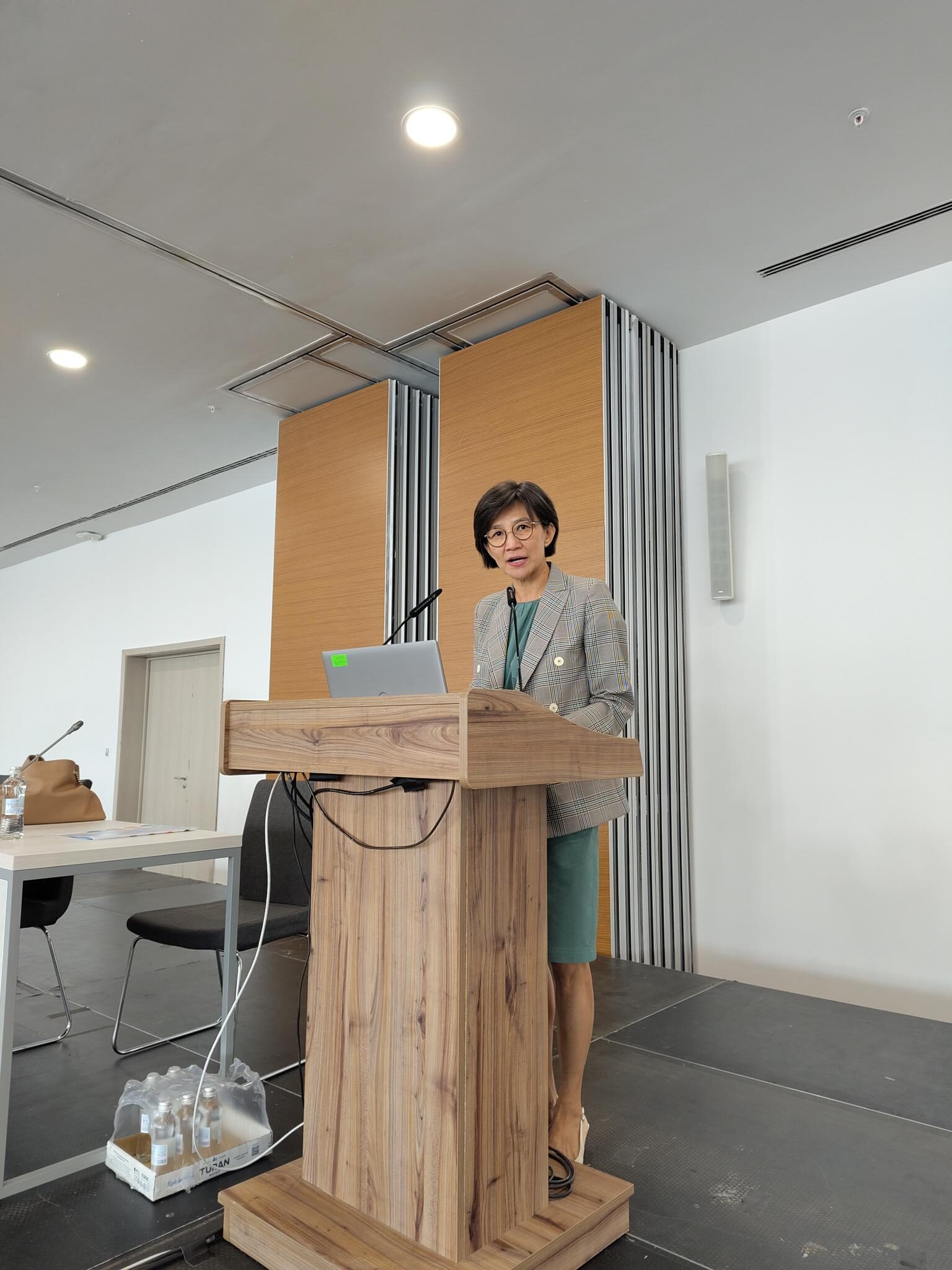UN Resident Coordinator underlines libraries’ key contributions to achieving UN goals
24 August 2025

In a special session at the 89th World Library and Information Congress in Astana, Kazakhstan, UN Resident Coordinator Ms Sarangoo Radaaragchaa gave a powerful speech underlining the role of libraries in delivering on key policy priorities.
Resident Coordinators have an important role in working across the full range of agencies and activities carried out by the United Nations. The UN office in Kazakhstan has a particularly broad focus in its work.
It was therefore a privilege to be able to welcome the Resident Coordinator for Kazakhstan, Ms Sarangoo Radnaaragchaa, to the World Library and Information Congress. In her speech (view here), she underlined that just like the UN, libraries are active across a wide range of issues in order to make for a better world.
Indeed, she saw strong parallels in the approaches taken between the UN and libraries, arguing that ‘libraries embody the very essence of the Pact for the Future’s commitment to people-centered development’, referring to the major document agreed last year aimed at boosting the effectiveness of the action of the UN as a whole.
Among the different contributions highlighted, she underlined libraries’ roles in supporting digital inclusion, shaping discourse around artificial intelligence, allowing everyone to access learning and more.
As she noted, “libraries, as trusted public institutions, play a pivotal role in this ecosystem: they democratise knowledge, bridge digital divides, and foster safe spaces for dialogue and learning”.
In particular for the United Nations, libraries could be valuable as spaces to access and bring to life the work and missions of multilateral institutions at a local level.
Within the United Nations, the Dag Hammarskjold Library was modelling this role, serving as ‘a vibrant meeting space for diplomats, researchers, and civil society, fostering dialogue and innovation around international policy and development’. This provided a helpful illustration of the difference that libraries based within institutions can make.
Finally, she highlighted the potential of libraries in Kazakhstan, noting the potential, for example, to combine work to develop national library strategies with those to update the country’s approach to urban planning.
In closing, Ms Radnaaragchaa encouraged libraries around the world to engage with their own UN Resident Coordinators, and to explore opportunities to collaborate towards common goals.
We encourage library associations and libraries to draw on Ms Radnaaragchaa’s words and explore how they can develop stronger relations with local UN teams that in turn help build profile and impact. Let us know how you are getting on.